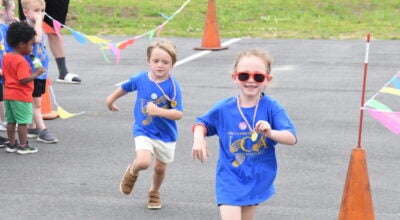Humane Society urges public to help prevent parvo
Published 4:42 pm Tuesday, March 3, 2015
A recent influx of puppies at the Chilton County Humane Society has shelter volunteers urging the public to help prevent the spread of parvovirus.
“We are starting to see the puppy season really pick up,” said Humane Society Board Secretary Katherine Reece. “If the animals at the shelter get infected with parvovirus, then it becomes a really bad situation.”
Canine parvovirus is a highly contagious viral disease that attacks cells and affects the intestinal tract of dogs. In some cases, the virus can be life-threatening.
The disease often leads to dogs feeling lethargic, having a fever, loss of appetite and vomiting. The virus can typically be transmitted through the feces and vomit of infected dogs and puppies.
The virus can be combated with vaccines for the animals. Reece also said the virus can be prevented if pet owners make sure puppies are kept in a confined area.
“If you have a mother dog who you know is about to have puppies, make sure those puppies are going to be in an area where they can’t just roam about,” Reece said. “One of the things about parvovirus is it is not immediately noticeable in dogs, so the shelter will get a litter of puppies who are infected with parvovirus and it ends up spreading to all of the animals in the shelter.”
Currently, the Chilton County Humane Society has no cases of parvovirus, but Reece said several litters of puppies recently brought to the shelter has volunteers asking the community to be on alert.
“We are just asking people who have dogs who are going to have puppies to be mindful of what could happen,” Reece said. “If the virus is brought to the shelter, then all of the puppies face being euthanized because we have to prevent the virus from spreading.”
A recent incident in Chilton County caused 15 puppies to be donated to the shelter, at once.
“This left us scrambling for figuring out ways to help the dogs,” Reece said. “All of the puppies were taken by a rescue organization up north, but that meant the shelter had to vaccinate all of them before leaving for rescue.”
Reece said with the increase of puppies showing up at the shelter, donations are always appreciated and accepted to cover the cost of vaccinating the puppies.
For more information about the Chilton County Humane Society, call (205) 755-9170 or visit www.chiltoncountyhumanesociety.org.






